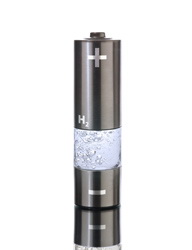Better fuel cells on the horizon
SOFCs produce electricity directly from oxidising a fuel. They are generally very efficient but suffer from high operating temperatures and age relatively quickly. The EU-funded project 'Realising reliable, durable, energy efficient and cost effective SOFC systems' (REAL-SOFC) looked at extending the lifetime of these cells to tens of thousands of hours in different conditions. It also wanted to make them more resistant to fluctuating outside temperatures and fuel impurities. The project team studied degradation processes and identified new materials to include in the devices. Working closely with researchers and industry, REAL-SOFC considered novel cost-effective materials, protective coatings, low-cost components and improved manufacturing processes. It also worked on standardising test procedures as well as dissemination and training initiatives regarding the latest SOFC technology in order to raise public awareness on the topic. At the end of the project, the team made significant headway in different areas related to SOFC. It outlined state-of-the-art components necessary to advance SOFC, including the powders for cathodes, anodes and interlayers within the cells. The team optimised cathode materials, produced dense yet thin internal layers to improve the cells and identified the most ideal conductive steels for them. These advances in technology and several other developments will help propel SOFC research much further and bring industry much closer to producing much more efficient fuel cells.







